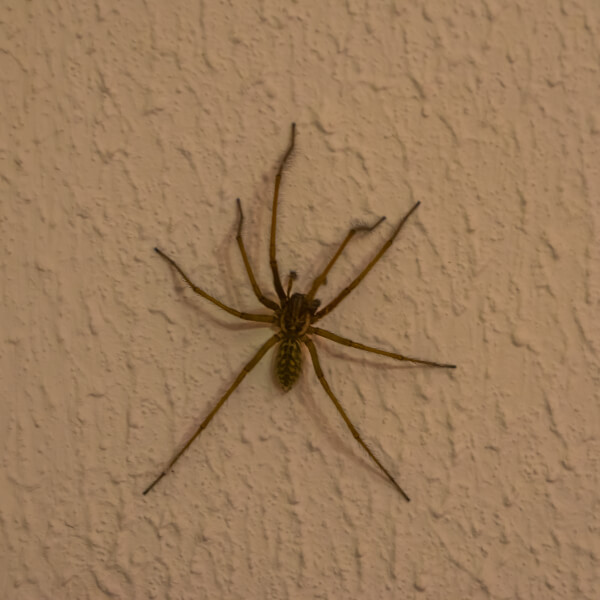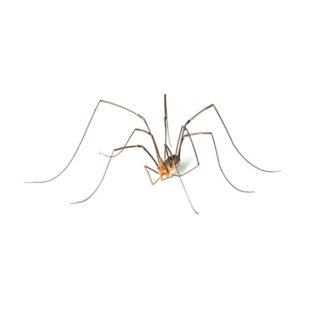Funnel Weaver Spiders in Long Island
Funnel spiders, also referred to as grass spiders, are well-known for their funnel-shaped webs. These spiders are often called grass spiders because they construct their webs in tall grass, heavy ground cover, and the branches of thick shrubs. Found throughout Long Island, funnel weaver spider webs are not necessarily sticky, but they are inherently difficult for the prey to escape. Once the prey is trapped, the funnel weaver spider can quickly crawl over and inject it with venom. Occasionally, these spiders may venture into homes in search of prey or mates.
Funnel Weaver Habitat
Funnel weaver spider webs are distinctive and constructed in tall grass, underneath boards and rocks, and around debris. Their webs are seen throughout grassy areas in summer to early fall and are noticeable in the early morning dew. Funnel weaver spider webs are shaped more like a megaphone, or the bell of a trumpet. These spiders prefer to build webs in darker areas, such as flower beds, woodpiles, and secluded corners inside structures. If found in the home, their webs are often in corners of dark rooms, such as the basement.
Funnel Weaver Spider Behaviors, Threats, or Dangers
Although they are most often mistaken for wolf spiders due to their appearance, when a funnel weaver spider is present in a home, many homeowners misidentify them as brown recluse spiders. However, funnel weaver spiders, or grass spiders are not poisonous, but are venomous. They contain venom, as all spiders do, but because of the small size of their fangs, they have difficulty penetrating human skin. These spiders are more of a nuisance pest as they molt several times before becoming adults, leaving cast-off skins around the house. Contact your local spider technicians for help with funnel weaver spiders.







